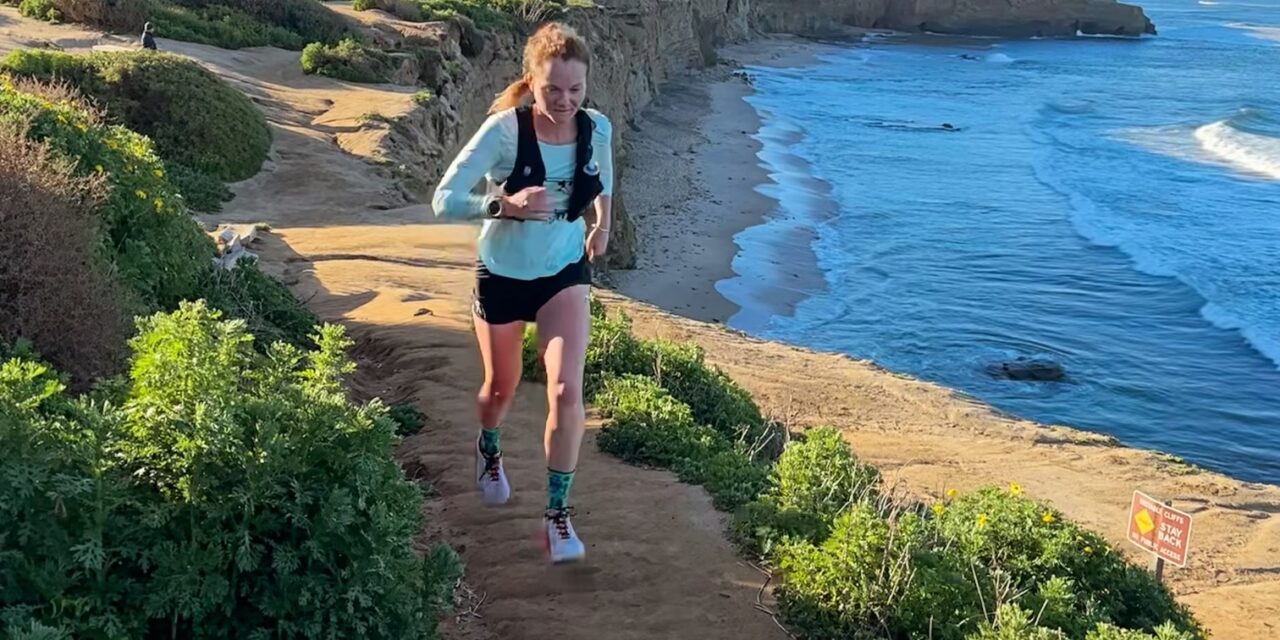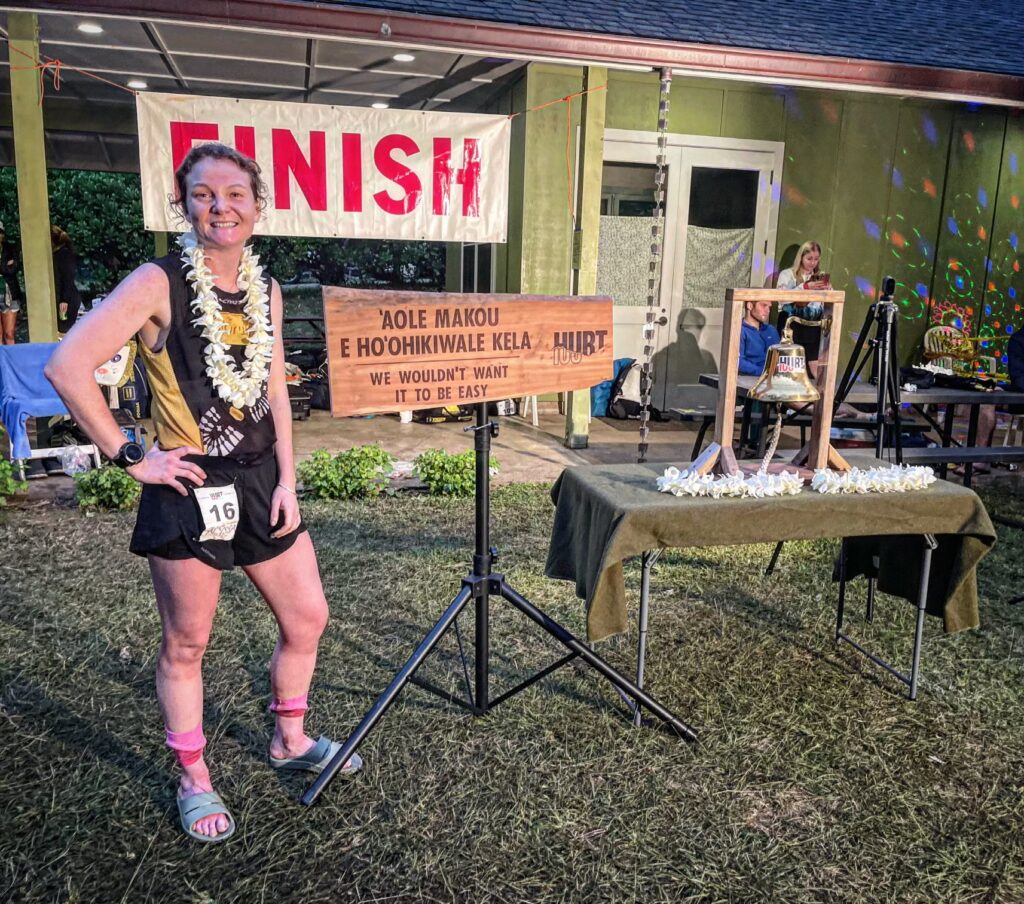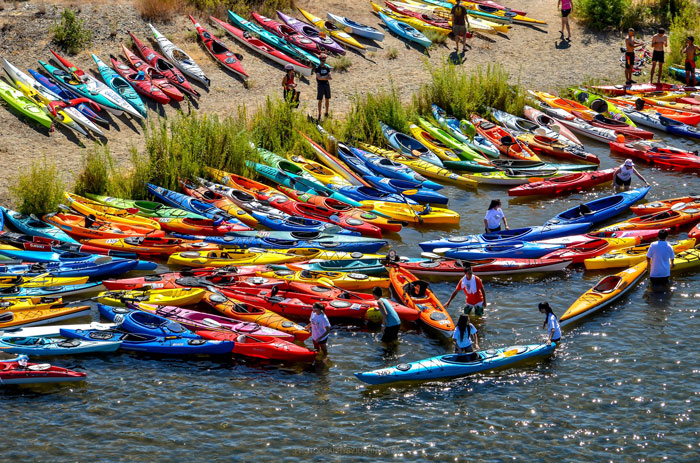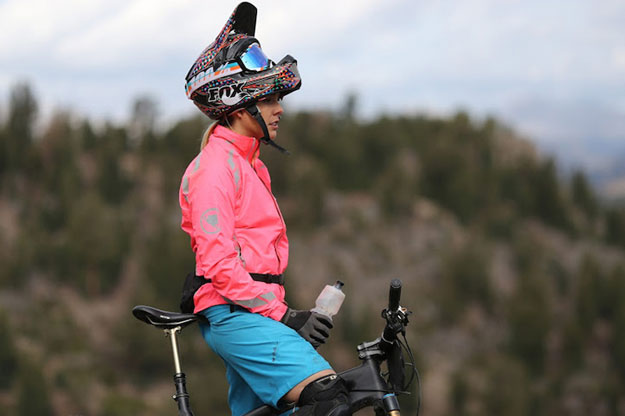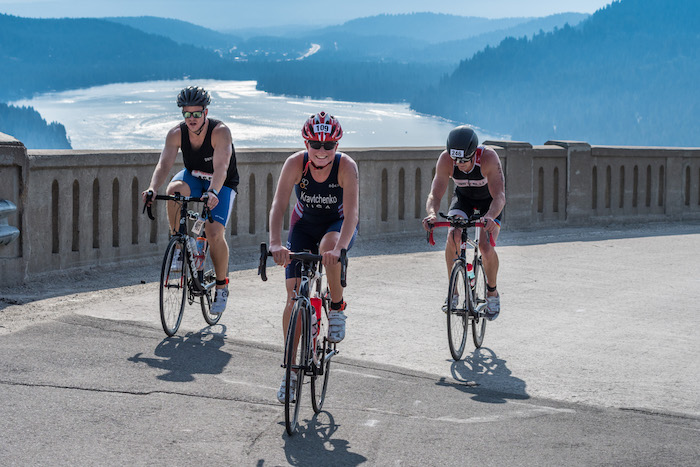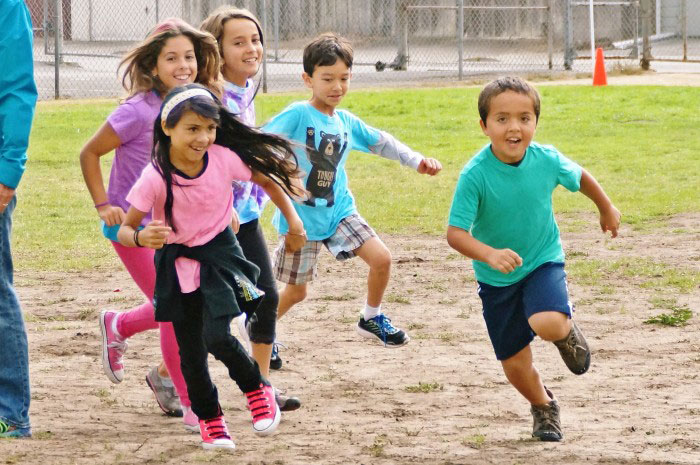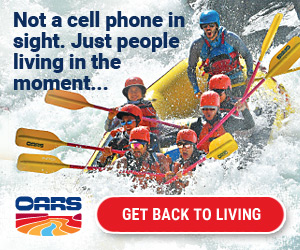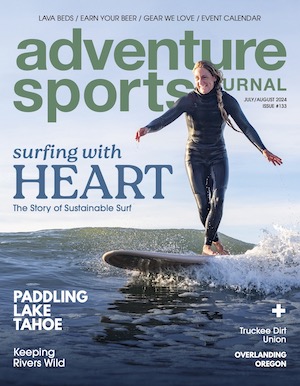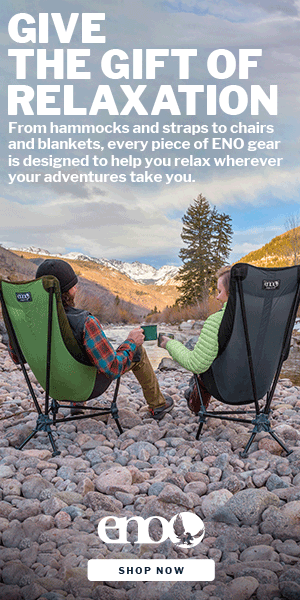- Interview with Ultra Runner Alyssa Clark - 06/04/2024
- Marin Headlands Marathon Recap - 04/13/2024
- Sierra Stick Gear Review - 04/09/2024
Ultra Running and Endurance with Alyssa
Athlete, coach and ultra runner Alyssa Clark is pushing the bounds in outdoor sports, especially for women. She’s set countless records at races such as HURT 100 and pursued her own goals including setting the Fastest Known Time running the 137 mile perimeter of Oahu, Hawaii. Based in San Diego, California, she now coaches aspiring athletes and pursues her own goals while living out of a van with her husband and cats.
This interview is part of a collection of stories featuring women in the outdoors. Find other articles in this collection here.
I’d love to hear a bit about you and your background. Where are you from and how did you get into what you do right now? Also how would you describe yourself in your career and what you do as an individual?
Alyssa: I grew up in Bennington, Vermont, so I’m from the East Coast originally. My family was also really outdoorsy. I have a brother and sister. My dad had done an IronMan, my mom biked across the country and across Europe. So I just grew up in a family where it was very normal to go out on six to eight hour hikes or even bike across Rhode Island on our days off. I think that when you grow up without knowing that’s not normal, you just go with it. I was always super competitive in sports, especially lacrosse, which was my main sport growing up.
Then my brother got into cross country skiing, and I ended up going to a ski academy in Vermont. It was crazy that your identity was shaped around being a cross country skier, which was an amazing experience and also a great world to be exposed to. As a 14 year old I’d be doing lactate threshold tests and going for four or five hour runs, kind of crazy stuff. While I was there I discovered that I really love moving through the mountains and through the woods for long periods of time. Then eating lots of snacks along the way and getting to run some downhills and hiking uphills.
So for me with my upbringing, endurance sports started to make a lot of sense. In my senior year of college I decided to run a marathon when I graduated, because I wasn’t really sure what I’d want to do afterwards as a collegiate athlete. I read Ultra Marathon Man when I was ten years old, and I really wanted to do that someday even though I didn’t really like running. I just thought it sounded cool. I made the decision to skip the marathon and do a 50k. I picked up a book that was really one of the only ultra running books at the time because this was back in 2015. When I was reading it there was a training plan in the back, so I just stuck to that. Later I was told that the training plan was really hard, but at the time I stuck to it and did everything. Looking back I can kind of see how intense it was, but it worked out really well.
I did the 50k race, had a blast, and then moved to Hawaii two days later for a teaching job. That’s also an incredible place for trail running and it had a great community, so when I was there I got to find my people through the running community there. I found that when a lot of people would get bored or tired on long runs, I could keep going and I actually really excelled at it, so that’s what drew me into more ultra distances. I have so much gratitude for that community because it really shaped the way I see the world and what I do now.
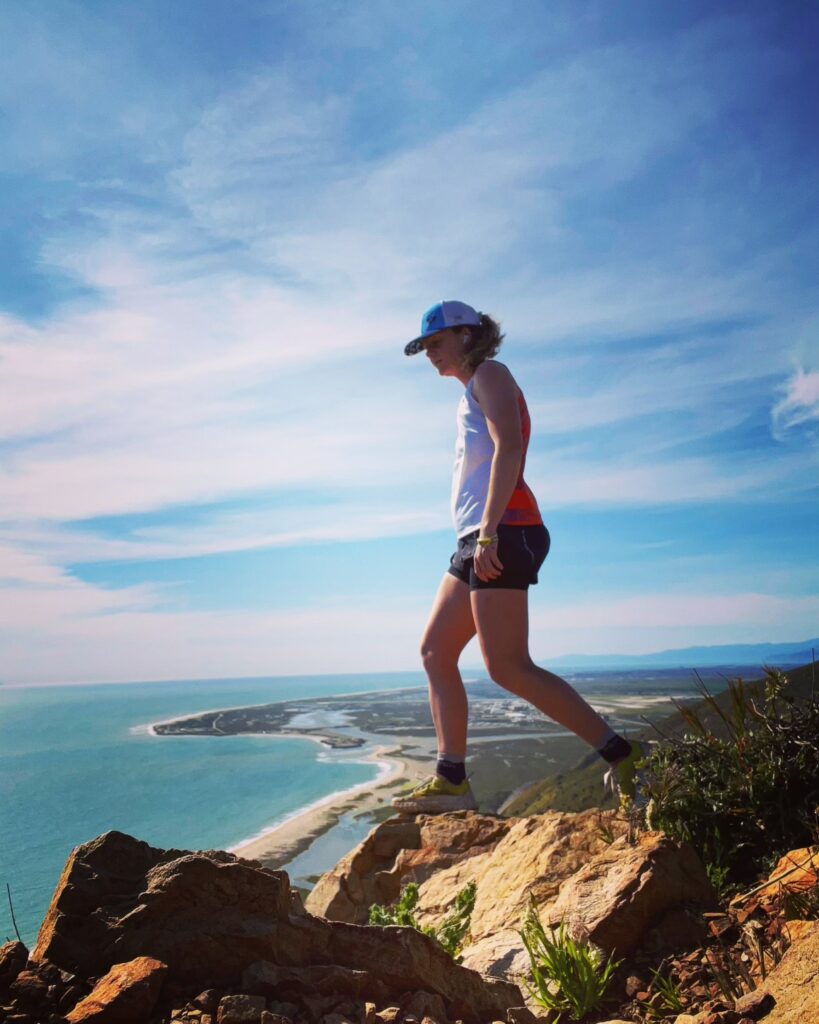
Looking out over the Pacific Ocean from the coastal mountains near Ventura, California. Image credit: Alyssa Clark
Since you started back in 2015, I can imagine that ultra running wasn’t as popular then.
Alyssa: It was insane, I’d say that when I first started it was just getting popular. Back then when I told people I was an ultra runner, they’d have no idea what I meant, and now a lot more people know about it.
What’s been the inspiration for you to keep at it and continue to push yourself in this sport? It can be hard to keep at something for that long and avoid burnout.
Alyssa: I think it’s because there’s so much variability in ultra running. A 50k is so different from a 200 miler, which is different from a road 100 miles, which is different from UTMB. So the way I see it is there’s always something else you can try and can be doing, which makes it really hard to get bored. In running there’s always another level you can reach towards, and keep pushing yourself in different ways.
For instance, you can focus on speed or endurance or running further or your nutrition strategies – there’s really so much. Then every year, because there’s a lot of races I want to do, I can’t fit all of them in, so it keeps me looking forward to more. Since there’s so much variability I just keep adding to my three or five year schedule. Deep down, I’d love to do the Pacific Crest Trail FKT (fastest known time) someday. There are just so many adventures out there.
Do you feel like you can’t do it all at once, and get frustrated by it? Or does it ever feel like you wish you could fit this one more thing in for the year. Are there ways you manage and cope with those feelings as well?
Alyssa: I think that’s something a lot of people deal with, and I do struggle with that a lot, especially when I was starting out. My current coach, who I’ve been working with for five years, told me once that you’re never going to reach your potential unless you focus. It took that bluntness from him for me to realize that it’s best to focus on what’s right ahead of me, and see what I can really do to reach towards that. It means that if you keep throwing things into your schedule without really following a plan, you’ll never succeed at the level you want to at your goal races.
Especially if you do that without proper rest, you’re heading towards injury. If you really want to be pushing the edges of your limit, you have to focus on the bigger goals that you’re looking at. For me, I was able to change my mindset by looking at the longevity in ultra running. You see people into their 50s and beyond that are succeeding in races, so it reminds me that I have time to do everything I want to do if I take care of myself. Making a plan for yourself that’s five to ten years out is helpful. It lets you see everything you want to fit in and plan it out.
That’s great what you’re pointing out, and I think it really helps to prevent burnout. For so many people who are into professional sports or being outdoors, even athletes at any level, it’s so easy to get wrapped up in everything you could be doing, which takes away from your progress at that moment. A lot of people in this world have a lot of drive and ambition that leads them to take on these challenges, but that mindset can also be detrimental to your progress. It’s a good reminder for a lot of people to just take your time because you have your whole life in front of you. A great part of hearing this from you is that you’ve accomplished so much with that mindset, so your perspective is really unique as a coach and athlete.
Alyssa: Thank you, and I do feel like coaching has helped change my perspective of it as well. Working with other people makes you take a step back and see things from a more critical and experience based lens. I’ve been told by other people that they see how I’m really playing the long game, a lot more than others do in this sport. Then my perspective on it really has changed the past few years as I continue racing and training, and just getting more experience with it to share with others. And I do also have those experiences of DNFing earlier in my career, when I put too much on my plate and didn’t have the outcomes I wanted. Really early on I got slapped in the face with some pretty big failures, which was actually really good for me to see what was and wasn’t working. It helped me realize that if I want success, then I need to be patient.
That seems like a great lesson to learn relatively early on too. Would you say that that’s something that inspired you to get into coaching? How did you go into that path of helping others with their goals and training?
Alyssa: Up until a year and a half, maybe two years ago I was a teacher. It was a great job and I always felt like sharing lessons and everything with others was a good fit for me. I also feel like these individual sports can be pretty selfish, so I wanted to give back to the community in some way, and for me that balances out my own personal training. I think teaching and coaching goes super hand in hand. They’re essentially the same thing, and I had experience coaching people through working with the Navy in their fitness program where I taught both group and individual classes. Then slowly I started getting a lot of questions about running, so it was a natural shift. I decided that I’d take a few people on and then I went from there.
It seems like coaching is something you’re genuinely passionate about too, and something that really interests you, so you’re always learning something more and gaining more experience from your training and racing as well.
Alyssa: Definitely, and a big reason many people work with a coach is to have someone that can look at your long term progression and be able to see what you might be missing. I was actually talking with a friend the other day and we were saying how humans are horrible at self reflection. It’s a primary instinct we should have, but we’re just awful at it, so that’s where having someone to look at it from the outside can be really helpful and having someone who’s continuously bringing that into the conversation is key. For myself, if I had too much leeway I’d just do what I enjoy doing, which would probably be too much. I just want to go out and do it but having that other perspective really helps me to stay on track and reduce my injury risk as well.
I can always tell that I’ve become good friends with someone when they ask me what I’m racing. Then if I respond with something like “Oh I’m racing 100km” they’ll say “isn’t that really short for you?” Which is so funny because then I can see how much I’ve influenced them, because for most people 100km is really long. I think it’s a blessing and a curse in some ways of having that internal drive. Because truly, I think the day I’m probably completely content with myself is the day after a race, where I did everything I wanted to do and I’m just completely exhausted.
For instance, after I ran HURT 100 last year and ended at around 6:30 in the morning, I went back to a friend’s house and crashed, then we laid on the couch and ate food and watched TV all day. I remember being so content because I did what I wanted and that was something I had really never felt any other day in my life. Because there’s always this internal voice trying to get you to constantly do better and keep trying as hard as you can. It can be such a gift to have that, but it can also be really tiring as well. For me, it means I’m constantly discontent, knowing that I should be doing more or working harder.
That feeling of being content is often what we’re chasing with all of this. It can almost be our end goal.
Alyssa: To be honest, I feel as if I’ve almost given up on being content. I don’t know, I’ve kind of accepted that we can’t reach it and I’ve become okay with that. Does that mean there will be moments I’m content? Of course. But I don’t cling to them like I used to. When those moments do happen I recognize that it’s only for a very short period of time, so I know that it will pass and I’ll go back to feeling at least some discontent. So it’s about accepting that yeah, that’s alright.
Coming to terms with that almost sounds like it’s one of the biggest goals you can have, and it’s not a physical one unlike so much of racing.
Alyssa: Yeah, and I think I’ve just given up on striving for that. It’s not something I’m going to focus on and it doesn’t determine if I’ve had a good day or not.
I’d love to talk about your racing and FKT achievements. What have been some of your most memorable achievements or experiences during these races?
Alyssa: I always feel like I’m the happiest and at my best when I’m out on an adventure. It feels almost like everything just clicks into place. There’s this sense of joy and happiness that running and the mountains bring me. It’s hard to pick specific moments but there’s a feeling that I get.
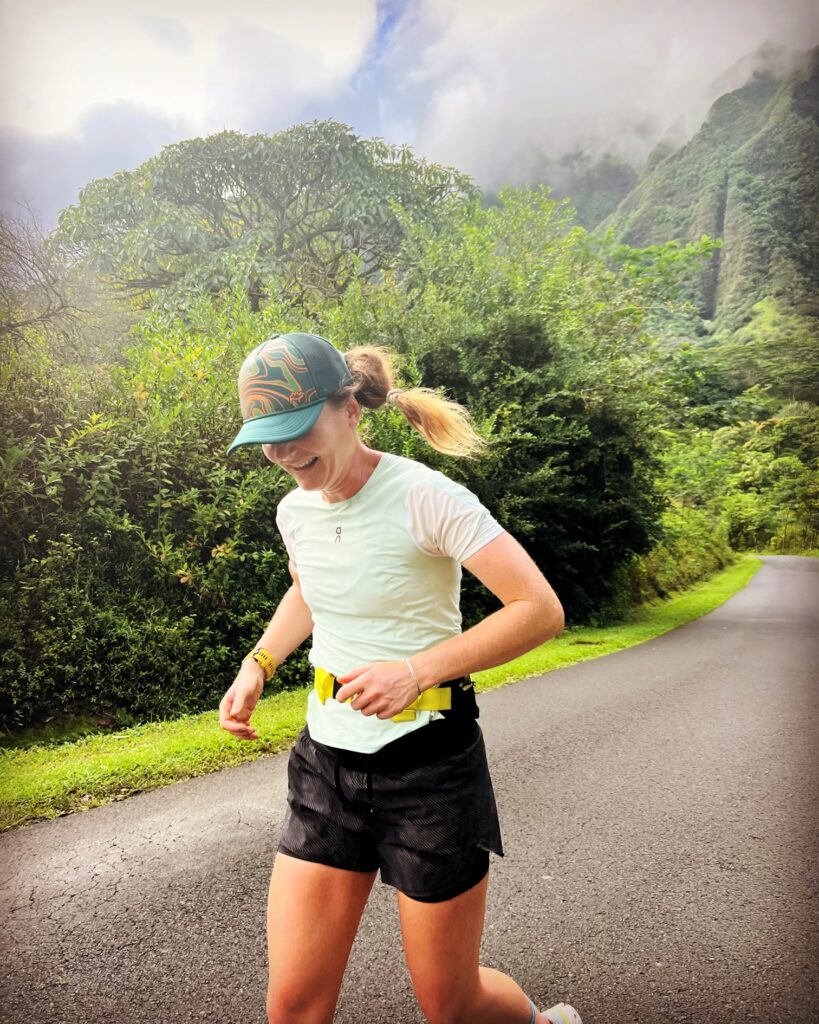
A training run in Kaneohe before setting the 137 mile Oahu perimeter FKT. Image credit: Alyssa Clark
Do you have any examples, or really anything that comes to you?
Alyssa: One of the best 24 hours of running I’ve ever had in my life was during HURT 100 last year. I was given a spot by the board at this race that’s really hard to get into. It was special to me because it felt like they wanted me to be there, even though it was my first 100 miler. That’s also where I realized I was going to marry my husband, because he was crewing me for 30 miles of it which is an entirely different story. I had a lot of friends out there too, and the community there felt like coming home. I was able to express my gratitude to the people who supported me through it all.
Absolutely it’s hard, but you also learn how to smile through it all. That’s definitely a race that stands out because I had so many amazing people there with me. Another one that comes to mind is when I did the Pinhoti trail, running 350 miles, which was kind of crazy. Then the Mount Whitney FKT that one really helped me take ownership of and improve my mountaineering skills and just experience exposure at a different level. To see women soloing things is also really inspiring and so I’m glad I was able to be part of it. Also, Moab 240 was incredible. I had the best crew and it was in such a beautiful spot. All these races really highlight people showing up and supporting you, which is so special to me. Then there are those hilarious moments on trail where you just laugh and make so many jokes that are so random. Then with the terrain itself it can be so challenging but it’s also really cool to see all the changes during those longer races. You get to see all these incredible places and experience them in a different way.
I think that’s a big reason I don’t get bored when I do something like that. It goes back to not getting burnt out too because there’s just so much to experience. Looking back at it sometimes I’m blown away by how young I was at a race and did really well, or how inexperienced I was. That’s what’s so cool about ultra running, because yes it’s hard and the training can be difficult, but you can also see so much growth from it. That’s why we see runners who are in their 30s and 40s do so well because they’ve learned how to deal with all those variables and excel at it. When you’re younger you don’t quite have that experience yet so it just takes time. Sometimes that’s frustrating but it also gives you something to look forward to.
It sounds like you’re really almost building that trust in yourself, you know, realizing that you’ve got this and can succeed at something you’ve trained really hard for.
Alyssa: You really do have an ever growing toolbox of skills you can use, which I think it’s so specific to ultra running. Then it gives you more options of how to deal with things so that you can get through them and succeed.
What do you see yourself doing next? You’ve talked about having a five year plan, so what does that look like for you? What are some of your upcoming goals, if you’d like to share. And for the people who are just getting started, what would be your top piece of advice from all of your experiences?
Alyssa: I’m hoping to do more of the scary and competitive races, which to me has always been something that I’ve steered away from. But UTMB is a big goal. It’s scary because UTMB is a huge race and the people who run it are really fast, so I have to be on my game. It’s almost like the Olympics of ultra running in a way where it features the best of the best. It also took me years to say I wanted to do UTMB because it just felt like such a big goal. But now it is starting to feel like I can compete and it feels more real. Then I’m doing a competitive race in Madeira, which is an island off the coast of Portugal at the end of April, and then planning on going back to HURT 100 and aiming for sub 24 hours, which no woman has ever done so I’m really excited for that.
As far as advice, I would say that the biggest thing that’s helped me in my career is finding mentors and reaching out to other people who have done these events, because having their support and advice is so helpful. It’s almost guaranteed they’ll want to help, and I bet they’ve also made mistakes and gone through challenges that they’d be glad to help you with. It’s also great to show up at races or volunteer, especially to just be in the community. Then when it comes to training, being smart about how you build and following a logical progression to the load to avoid burnout. Then also enjoy it, embrace the experience. Because you only run your first 50 mile or 100k once, so don’t rush through the intermediary steps.
You can learn more about Alyssa through her coaching page with Uphill Athlete and on her Instagram.

